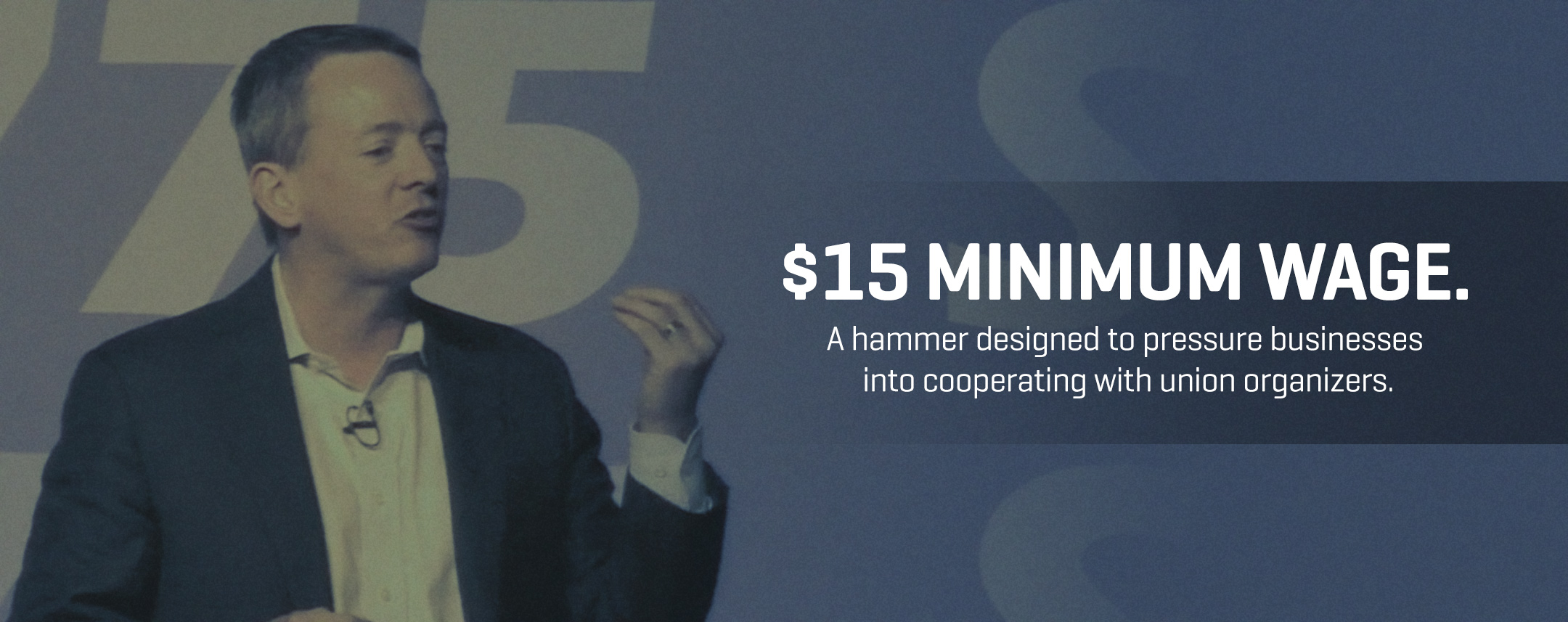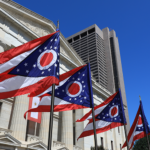For many individuals, labor unions can elicit strong emotions. For some, belief in the power and worth of labor unions is quasi-religious, perhaps due to the similarities between the “Social Gospel” of some denominations and the alleged motives of the labor movement. It is not without reason that union halls are often referred to as “labor temples.”
So when labor unions are called out for being self-interested vendors of workplace representation services that focus on maximizing dues collection, some respond with indignation.
For instance, a recent article in the Seattle Times explained how unions often seek exemptions for unionized firms from minimum wage and paid sick leave laws, reasoning that non-union employers will look more kindly on union organizing if it provides a means of escaping an onerous $15 minimum wage. The Freedom Foundation has written about this phenomenon at length in national and local publications.
Many commenters on the Seattle Times piece had nothing to say about its substance, but retreated to the more comfortable ground of personal ad hominem attacks against the author. One dismissed the article as a “bald-faced lie.”
However, as the Freedom Foundation has documented, even unions admit they use minimum wage laws as organizing tools.
Now, thanks to the internet, SEIU 775 President David Rolf is on the record admitting the $15 minimum wage law his union spent hundreds of thousands of dollars to pass in SeaTac, Wash., was meant to help unions organize new firms.
The Freedom Foundation recently uncovered a radio interview with Rolf by Marie Choi on 94.1 KPFA, a progressive radio station based in Berkeley, Calif. The interview took place days after the 2013 election in SeaTac, when ballots were still being counted and the outcome remained uncertain.
Key excerpts from the interview are provided below. The full interview is available here.
Choi: What motivated SEIU 775 NW to get involved (in the SeaTac minimum wage campaign)?
Rolf: It’s the right thing to do… It’s simply time to say enough is enough, and for voters to stand up and tell CEOs and politicians that they are losing patience waiting for them to do the right thing.
Choi: That’s really refreshing to hear because, until pretty recently, unions were acting, to a large extent, in their own interests…
Rolf: Our mission is to improve the lives of workers and to pave the way for a more just and humane society… I think what broad social movements are ultimately built on are deeply moral claims to justice and aspirational, not incremental goals.
Choi: There’s one part of the ballot measure that actually wasn’t discussed much publicly in SeaTac, which is the waiver for union employers. Can you tell me about that?
Rolf: Sure. It’s a feature of most of the nation’s living wage laws — that are in place in about 120 different municipalities — that provisions of the law don’t supersede what’s negotiated between unions and management through the collective bargaining process…
Choi: Was that (the union waiver) included as a way of trying to incentivize employers to accept unions in their workplaces?
Rolf: We always want to offer an olive branch and a high road approach to employers of conscience who would prefer to have direct and honest dealings across the bargaining table with a union that their employees vote for. So, yes, we hope that amongst the several unions that are active in the airport economy — such as SEIU Local 6, Unite Here Local 8, Teamsters Local 117, and UFCW Local 21 — that if workers choose to join those unions, we want to, you know, facilitate and encourage productive, bilateral collective bargaining agreements.
Rolf likely wasn’t expecting such pointed questions from a progressive radio show host. His hypocrisy pretty much speaks for itself. Out of one side of his mouth, Rolf contends that the $15 minimum wage movement has “deeply moral claims to justice,” while out of the other side of his mouth he admits that it’s really a hammer designed to pressure businesses into cooperating with union organizers.
While unions and businesses might benefit from the waivers, their deal-making typically involves workers (1) losing their ability to vote about whether to form a union in a secret ballot election and (2) being paid less than the minimum wage unions said it was their right to receive.
Rolf’s comments to Choi also contradict what he told other reporters. When asked by PBS if unions stood to gain membership by passing the $15 minimum wage law in SeaTac, Rolf scoffed, claiming his involvement was purely for “the greater good” and denounced the “rampant greed and special deals” of “big corporations.”
Right.
Adding to the irony, Rolf’s union has demonized the Freedom Foundation in mailings to its members on the grounds that, “They oppose raising the minimum wage… Clearly, the so-called Freedom Foundation doesn’t have the best interests of caregivers at heart.”
For the record, the Freedom Foundation opposes raising the minimum wage not out of any animosity towards workers, but because the evidence clearly shows that doing so decreases job opportunities, hours and benefits for entry-level workers while raising prices for consumers and failing to alleviate poverty.
In contrast, Rolf’s willingness to throw out his moralistic minimum wage rhetoric at the first opportunity to boost unions’ dues collection indicates that the only interests in his heart are his own.










